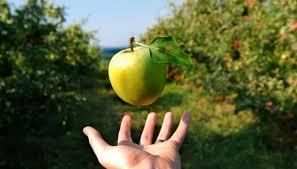Class 7 Exam > Class 7 Notes > Year 7 Physics (Cambridge) > Gravity
Gravity | Year 7 Physics (Cambridge) - Class 7 PDF Download
Mass and Its Measurement
- Definition: Mass refers to the amount of matter in an object, measured in kilograms (kg).
- Example: A bag of sugar weighing 1 kg on Earth has a mass of 1 kg.
Weight and Gravity
- Definition: Weight is the force exerted on an object due to gravity, measured in newtons (N).
- Equation: W = mg, where W is weight, m is mass, and g is acceleration due to gravity (approximately 9.81m/s2 on Earth).
- Example: The weight of a 1 kg bag of sugar on Earth is 1 × 9.81 = 9.81 N.

Difference Between Mass and Weight
- Explanation: Mass remains constant regardless of location (e.g., 1 kg on Earth is 1 kg on the Moon), while weight changes with gravity.
- Example: Your mass is 56 kg on Earth and would be the same on the Moon, but your weight on the Moon would be less due to lower gravity.
Gravity on Different Planets
- Comparison: Gravity varies on different planets based on their mass and size.
- Example: On Jupiter, with a higher gravity (approximately 25m/s2), a person weighing 560 N on Earth would weigh 1400 N.
Question for GravityTry yourself: What is the difference between mass and weight?View Solution
Practical Applications
- Using Force Meters: Force meters measure weight by exerting a force opposite to gravity.
- Example: A force meter shows that a 1 kg object weighs 9.81 N on Earth.
Isaac Newton's Contribution
- Concept of Gravity: Newton observed falling objects and formulated the law of universal gravitation.
- Example: Newton used the falling apple to understand gravitational forces.
Conclusion
- Mass measures the amount of matter, while weight measures the force of gravity on that matter.
- Mass is invariant, but weight varies with gravitational strength.
The document Gravity | Year 7 Physics (Cambridge) - Class 7 is a part of the Class 7 Course Year 7 Physics (Cambridge).
All you need of Class 7 at this link: Class 7
|
14 videos|31 docs|9 tests
|
FAQs on Gravity - Year 7 Physics (Cambridge) - Class 7
| 1. What is gravity? |  |
Ans. Gravity is the force that attracts two bodies towards each other. It is what keeps planets in orbit around the sun and objects on Earth from floating off into space.
| 2. How does gravity affect objects on Earth? |  |
Ans. Gravity pulls objects towards the center of the Earth, giving them weight and causing them to fall towards the ground when dropped.
| 3. Can gravity be felt in space? |  |
Ans. Yes, gravity is still present in space, but its effects are less noticeable because there is less mass around to exert gravitational force.
| 4. How does gravity differ on other planets compared to Earth? |  |
Ans. Gravity on other planets is determined by their mass and size, so it can be stronger or weaker than on Earth. For example, gravity on Jupiter is much stronger than on Earth.
| 5. How was the concept of gravity discovered? |  |
Ans. The concept of gravity was first proposed by Sir Isaac Newton in the 17th century when he observed an apple falling from a tree and realized that the same force that caused the apple to fall also kept the moon in orbit around the Earth.
Related Searches
















